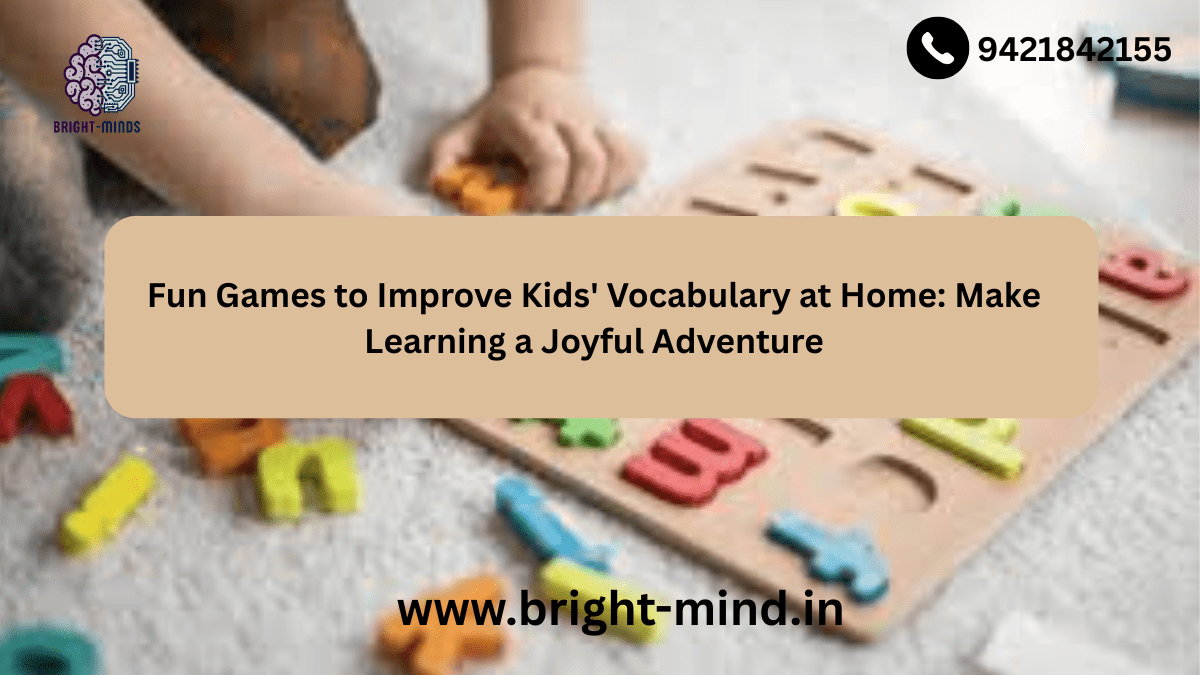In today’s digital age, parents and educators are constantly looking for creative ways to help children grow academically while keeping them engaged. One of the most crucial skills kids can develop early on is a strong vocabulary — the foundation for reading, writing, comprehension, and even future success in school and beyond.
The good news? Building vocabulary doesn’t have to feel like homework.
Whether you’re a parent working from home or a company offering employee wellness resources for families, incorporating fun, educational games into daily life can spark curiosity, strengthen language skills, and encourage independent learning. This guide explores beginner-friendly, entertaining ways to enhance your child’s vocabulary right from the comfort of your home.
🌟 Why Vocabulary Matters — Even Beyond the Classroom
Before we dive into the games, it’s important to understand why vocabulary matters in the first place.
A rich vocabulary:
- Improves reading comprehension
- Boosts communication skills
- Enhances creative and critical thinking
- Correlates with academic performance in all subjects
- Contributes to emotional intelligence and confidence
According to recent educational trends, early vocabulary acquisition is a strong predictor of later success — not just academically, but in life and career development. For working parents and company teams focused on long-term financial literacy and growth, supporting vocabulary learning at home is a smart, sustainable investment in a child’s future.
🎲 Fun and Easy Vocabulary Games You Can Play at Home
Let’s make vocabulary practice exciting! Here are some tried-and-true games that turn learning into playtime — perfect for kids aged 4–12.
1. Word Scavenger Hunt
How to play:
Write down 5–10 new vocabulary words and hide them around the house. Each word comes with a clue or a definition. Kids must find the word, read it aloud, and use it in a sentence.
Why it works:
This game combines movement with learning, perfect for energetic kids. It also reinforces word comprehension and usage.
2. Vocabulary Charades
How to play:
Choose a few new or tricky words and have one person act out the word without speaking, while others guess. Take turns and keep score for added fun.
Pro tip: Use themed sets like “nature words” or “emotion words” to match your child’s learning goals.
3. Synonym Switch
How to play:
Pick a common word (e.g., “big”) and challenge your child to come up with as many synonyms as possible (e.g., huge, massive, gigantic). Turn it into a timed game or family competition!
Real-world value:
This builds depth in vocabulary — an essential skill for writing and expressive speech.
4. Alphabet Adventure
How to play:
Go around the room and name items that begin with each letter of the alphabet — but with a twist. Each player must describe the object with an adjective or action word, like “ancient apple” or “zippy zebra.”
Bonus: This builds both noun and descriptive vocabulary, and supports phonics for younger children.
5. Story Cubes or Word Dice
How to play:
Use story cubes or homemade dice with different vocabulary words. Roll the dice and craft a short story using all the words that appear. It’s great for groups or solo play!
Why it’s impactful:
This game promotes contextual learning — one of the most effective ways for kids to remember new words.
💡 Quick Tips for Maximizing Vocabulary Play
- Keep a Word Wall at home with new words learned each week.
- Incorporate books with rich vocabulary — then turn them into games.
- Celebrate small wins with rewards, stickers, or praise.
- Rotate games regularly to maintain interest and motivation.
- Make it a family habit — learning together builds stronger bonds and more consistent practice.
💼 Why Companies Should Care: A Smart Move for Working Parents
Many employers now offer wellness and education benefits for employees with families. Encouraging vocabulary-building games at home can:
- Reduce after-school screen time
- Enhance parent-child relationships
- Improve a child’s school performance (less stress for working parents!)
- Create a long-term pipeline of literacy and financial education
By sharing these tools with employees, companies contribute to holistic well-being and lifelong learning — both crucial in a fast-changing, digital economy.
📈 Market Trend Insight: EdTech + Home Learning
The EdTech market is booming, with a growing focus on gamified learning. Home-based vocabulary games align with this trend by offering:
- Affordable, low-tech options
- Customizable experiences
- Social-emotional learning benefits
This makes them a natural gateway to more advanced learning platforms, including online reading programs, vocabulary apps, and family-focused education courses.
🚀 Ready to Level Up? Take the Next Step
These vocabulary games are just the beginning. Once your child builds confidence through play, it’s time to take the leap into more structured learning.
🎯 Explore our curated resources — from beginner word kits to interactive courses that grow with your child’s vocabulary journey.
👉 Start your child’s learning adventure today →
You might be interested in this:-

